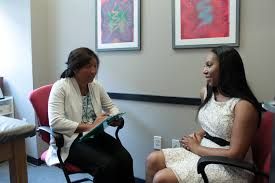Career
Three Critical Questions To Ask Your Therapist
Are you being fooled by your therapist? Don’t be!
Posted November 5, 2014

Would you want someone to conduct surgery on you who was not adequately trained and credentialed to do so? Would you want someone to represent you in court without a law degree and a license to practice law? Would you want your airline pilot to have had minimal training and no license to fly an aircraft? Of course not! Yet sadly, many people are willing to take this kind of risk when it comes to their psychotherapist. Why would they when they don't have to do so?
Anyone can call themself a counselor, therapist, life coach, and so forth without any training or certification at all. For example, remarkably some of the very best known “psychologists” in the country who, for example, have TV or radio shows, are interviewed often in the press as experts, and have lots of popular books aren’t psychologists or licensed mental health professionals at all! Many use deception to get you to believe that they are trained and credentialed experts when they are not. You'd be surprised if you investigated the background of many of these people. In fact, my college undergraduate psychology students here at Santa Clara University have more psychology training and course work under their belts in the field than so many of these so-called experts. Go figure!
This is especially problematic and concerning since when people seek the services of a therapist or perhaps read a self-help book they are often vulnerable while looking for help with some very important life problems. They may have worries about important family, peer, or work relationships or perhaps challenges with their mood, impulse control, substance use, and so forth. Some of these struggles are life and death concerns such as coping with suicidal or homicidal thoughts and impulses. They deserve the very best information and quality professional services available to maximize their chances of getting the help that they need.

So, before securing the services of a therapist (or before reading one of their how to books) do yourself a big favor and look into their educational background and certifications. And be sure to ask these three critical questions too. These including the following:
1. License to Practice? Is the “therapist” a licensed mental health professional? All states license (and control the credentialing process) for psychologists, psychiatrists, social workers, marriage and family counselors, and professional counselors. Refuse to work with someone who is not licensed to practice! Each state keeps a public record of those who have a license in their state. This is easy to find online. Check the list to be sure your therapist is on it. If they are not then there is a problem.
2. Adequate Education? Just because someone calls themself an "expert", a “doctor” or a "therapist" really doesn’t mean anything at all. For example, the doctorate could be in an area of study that has nothing to do with being a therapist. The degree could also be completely fake. You can buy one on the internet today if you wanted to do so (all you need is internet connection and a credit card)! Since words such as "therapist," "expert," and even "doctor" aren't controlled by state licensing procedures anyone can use these words to describe their services. And if they say they have an important degree (like a doctorate) be sure that it was earned from an accredited and legit university. Sadly, many are not.
3. Appropriate Expertise? Be sure to ask your therapist if he or she has had supervised training experiences with the topic that you need help with. Be sure to find out if they are providing you with evidence-based and state-of-the-art interventions that they were trained to provide for your particular area of concern. Organizations such as the American Psychological Association (see www.apa.org/helpcenter) offer plenty of helpful information about what is (and what is not) state-of-the-art and evidence-based interventions and other services.
When it comes to seeking the services of mental health professionals there is some good news and some bad news. The good news is that there are lots of wonderful, well-trained, and licensed mental health professionals out there who offer high quality, evidence-based, professional, and state-of-the-art professional services. But the bad news is that there are a lot of folks out there who have no business representing themselves to the public as professional therapists, counselors, and experts and use deception to do so. Do yourself a big favor and stay away from them!
You want to be sure that your surgeon, lawyer, and airline pilot are properly trained and credentialed so why wouldn't you want the same to be true for your therapist? Ask these three questions before agreeing to be treated by anyone representing themself as a mental health service provider....and thank me later!
So, what do you think?
Check out my web page at www.scu.edu/tplante and follow me on Twitter @ThomasPlante
Copyright 2004 Thomas G. Plante, PhD, ABPP


